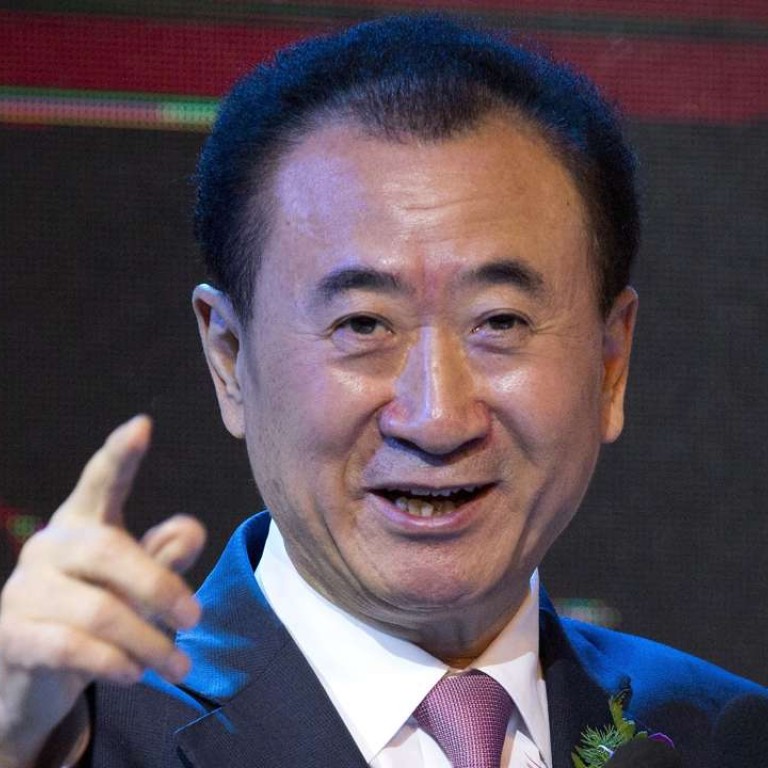
A feast for wolves: China’s richest man is hunting the global sports and entertainment industry
From football to Disney to Indian cricket, Wang Jianlin’s Wanda Corporation is leading a pack of business interests with the aim of building an entertainment empire stretching from China to Hollywood
Wang Jianlin is China’s richest man, his fortune derived from his ownership of the Wanda Corporation.
Wang set up the company in 1988, originally to deal in real estate. Through a process of conglomeration, the business is now also active across the hospitality, retailing, tourism, entertainment and sport industries.
This has enabled Wang to accumulate a personal fortune worth more than US$30 billion, and to build a company currently generating upwards of US$40b each year.
This is a long way from his origins; Wang started out as a member of the People’s Liberation Army, later becoming an administrator in a local government office in the city of Dalian.
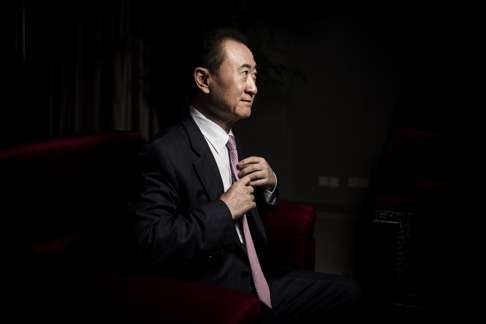
Crucially, Dalian had their own football club, which was initially called Dalian Shipyards and later became Dalian FC when it was taken over by the local government.
In 1993, Wang acquired the club, renaming it Dalian Wanda. By the late 1990s, the football club had been sold again, although by this time Wang had already set about creating what has arguably now become the most influential business in world football.
An East-West one-two for oil and power in China and Qatar’s stadium diplomacy
Most people from outside China probably first became aware of Wang in early 2015, when Wanda purchased a 20 per cent stake in Spanish side Atletico Madrid.
At the time, the Chinese businessman talked of his intention to build a global entertainment business that would stretch from China to Hollywood, and as the network visualisation below shows, Wang is following through on his intentions.
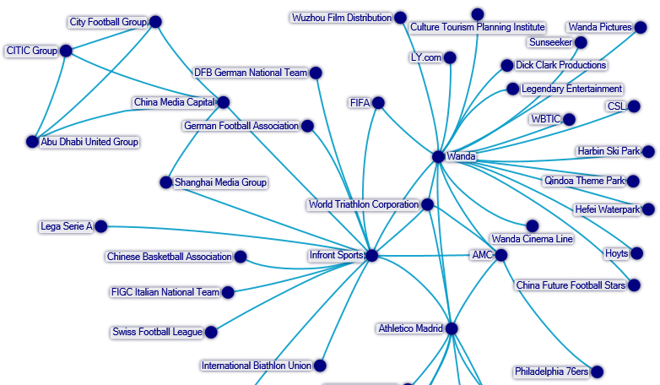
At another level, the network is so complex and diverse that it shows how influential Wang and Wanda have become.
What’s the link between Wolves, Brad Pitt and UK broadcaster Channel 4? The Chinese concept of ‘guanxi’ holds the key
Just like our Fosun analysis, the Wanda network visualisation further demonstrates the importance of guanxi – broadly defined as networks, relationships and connections – in Chinese business. In this network, the right of the diagram depicts an array of predominantly Chinese relationships that underpin Wang’s vision of a global entertainment axis.
Whether it is Disney in particular or Hollywood in general, Wanda is already challenging global entertainment’s existing order. Indeed, the ebullient Chinese businessman has recently said of Disney that “one tiger is no match for [my] pack of wolves.”
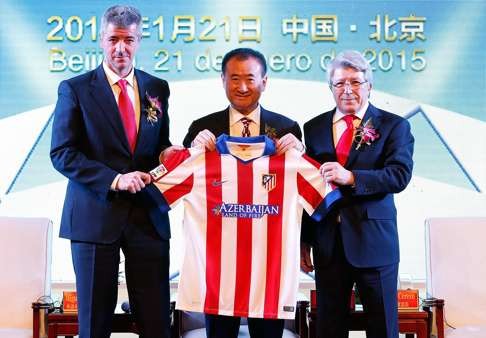
Equally important in Wanda’s network however is the role played by both Atletico and Infront Sports and Media (ISM).
Purchasing Atletico cost the Chinese conglomerate US$52 million, and the company has also recently agreed to take-up a naming rights deal on the club’s new stadium.
How Chinese corporations are leading the way in country’s global grab for football
In recent years, Atletico have been through something of a renaissance, twice reaching the Uefa Champions League Final. Yet the broader network in which Atletico is embedded is possibly more important to Wang’s long-term strategy of building his entertainment empire via sport.
Atletico are co-owners of Indian Super League football club Atletico de Kolkata. Together, the latter’s group of co-owners is called Kalkata Games and Sports Pvt Limited. The group consists of former India cricket captain Sourav Ganguly, businessmen Harshavardhan Neotia, Sanjiv Goenka, and Utsav Parekh, as well as Atletico itself.
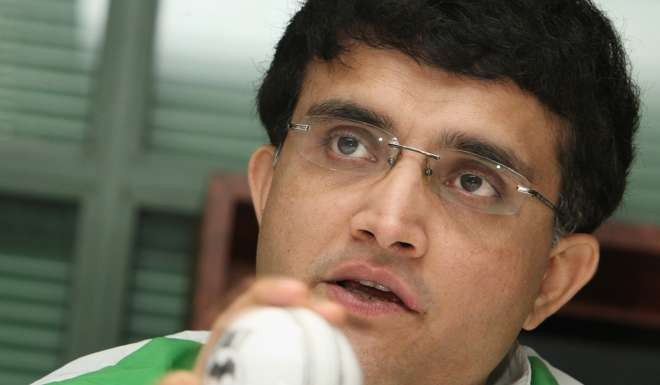
Many people will recall Ganguly as being one of India’s best ever cricketers as well as one of its most notable national team captains. However, he is now a member of Indian Premier League (IPL) cricket’s governing council as well as being president of the Cricket Association of Bengal. It is worth noting too that Ganguly’s fellow Kolkata group member, Sanjiv Goenka, is also owner of the IPL’s newest team – Rising Pune Supergiants.
How One Belt, One Road is guiding China’s football strategy
IPL cricket is a phenomenon, capturing the attention (and the wallets) of sports fans in one of the world’s most populous nations. Television viewing figures for a round of IPL games are heading towards two hundred million, reinforcing cricket’s position as one of India’s leading forms of entertainment (alongside Bollywood films).
And through its investments, partners and connections, Wanda is therefore invested into one of 21st century sport’s biggest commercial properties.
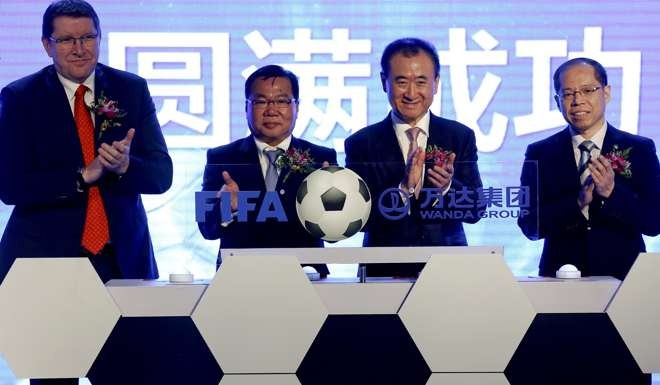
Wanda paid US$1.2b for ISM in February 2015; the Swiss-based sports marketing company manages the marketing and media rights of several of the world’s leading sports organisations. One of ISM’s biggest clients is Fifa, specifically the World Cup, for which it produces television content.
This is helpful to Wanda, given its entertainment ambitions, and to the Chinese government and its vision for football. Wanda also serves as a World Cup sponsor, which gives the conglomerate unprecedented access to Fifa’s top decision-makers. This is helpful for a nation intent on one day hosting world football’s biggest tournament.
Football has entered the Asian era – and the region is reinventing the global game
With the 2022 Winter Olympics due to be held in Beijing, and with China intent on building a winter sport economy, it is helpful too that ISM also represents all seven Olympic winter sport federations, and manages media rights for the International Ski Federation’s World Cup events.
This part of Wanda’s network of influence intensifies even further, as China Media Capital (CMC) and Shanghai Media Group (SMG) also have stakes in ISM.
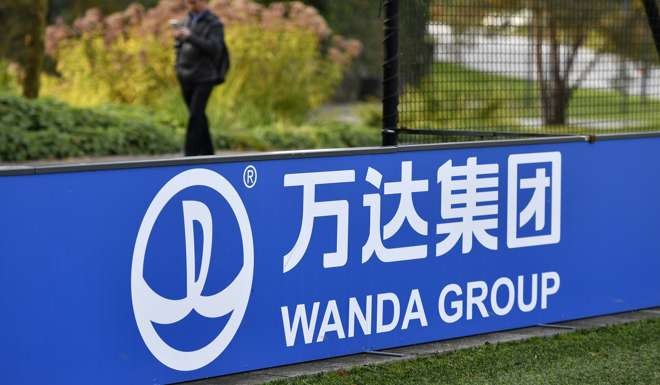
This links Wanda into the Abu Dhabi United Group, the China International Trust and Investment Corporation (CITIC), and the City Football Group which owns a 13 per cent stake in Manchester City.
Beyond these important nodes in Wanda’s network lies a multitude of further, intriguing relationships.
More than a game as China and Qatar meet in ‘symbolic’ World Cup qualifying clash
For example, there are links to controversial businessman Li Ruigang, who was president of SMG until 2011, a position he now holds at CMC.
In another case, Wanda’s ownership of the AMC cinema chain extends the company’s network into the National Basketball Association through an AMC board member who co-owns the Philadelphia 76ers.
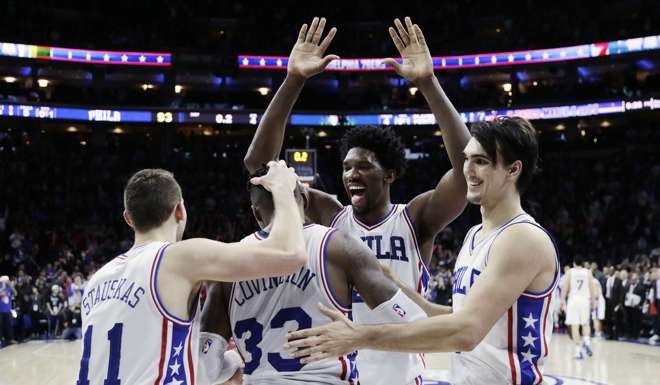
If, as Wang has stated, his businesses are wolves, then he is without doubt leader of the pack. Indeed, as a voracious hunter who has accumulated massive corporate influence through his knowledge and understanding of guanxi, it seems likely that Wanda will not stop at hunting down Disney.
Several of global sport’s leading properties, as well as some of Hollywood’s biggest assets like Dick Clark Productions, which runs the Golden Globes, have already been gobbled-up. Expect the feast to continue for the foreseeable future.
Additional Reporting: Dr Paul Widdop and Dr Daniel Parnell.
This piece is published in partnership with Policy Forum.net – an academic blog based at the ANU Crawford School of Public Policy.


